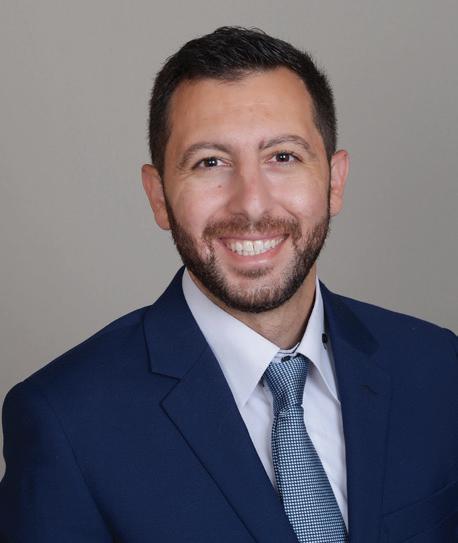
1 minute read
TODD VANDERAH
PhD
Department Head, Pharmacology
Advertisement
Vanderah@email.arizona.edu
Todd Vanderah is Head and Professor of Pharmacology, and is a Professor in the Departments of Neurology and Anesthesiology. His research interests include mechanisms of cancer pain, neuronal integration in pain pathways, neurochemical release during conditions of neuropathy, neuronal plasticity, opioid receptor pharmacology, and novel targets for drug discovery. He is author of over 135 original research articles.
Sarah Deller
University of California, Irvine
Sdeller@arizona.edu
Sarah Q. Deller is a rising sophomore at the University of California, Irvine. She is majoring in Public Health Sciences and getting a minor in Medical Humanities. Her ultimate goal is to become a Family Medicine doctor working in underserved communities. Equipped with a foundation of public health, Sarah hopes to promote preventative medicine as a physician dedicated to community health. Raised in a multiracial family, she learned about the disproportionate health consequences facing minorities first-hand. Through her Harbor-UCLA Health Research fellowship, alongside doctors, she researched the disproportionate health effects caused by urban oil drilling faced by those living in the Harbor region of Los Angeles. Additionally, through Harbor-UCLA, she researched the education gap prevalent among different high schools in South Central LA and presented findings to medical professionals. In the past, she started a tutoring center for BranchOut! Veritas in order to fight the education gap.
At UCI, she volunteers at a food pharmacy through the Global Medical Training Club and volunteers at the SERVEOC Health Fairs.
⊲ PROJECT HIV Acceptance Amongst Patients of the University of Arizona Mobile Health Unit
Through the Blasier/Frontera Internship, Sarah was introduced to Dr. Sheila Soto who is the Director of the Mobile Health Units for the University of Arizona. In the last year, the mobile health units added routine HIV testing to the services offered. Getting tested for HIV is crucial because knowing one’s status decreases spread, fights stigma, and provides treatment to those who are positive. In response, Sarah researched ways to increase the acceptance of HIV testing and reported the amount of patients who accepted HIV testing at the University of Arizona’s Mobile Health Units.





